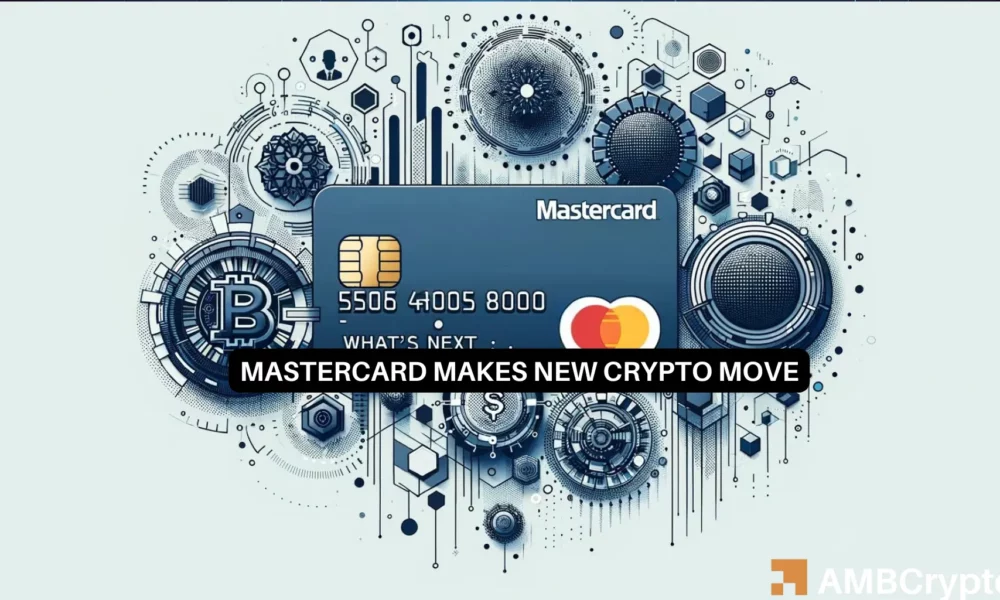- Mastercard has launched a peer-to-peer network for cross-border digital asset transfers.
- The P2P network, known as Mastercard Crypto Credential, targets users in Europe and Latin America.
Mastercard launched the Mastercard Crypto Credential on May 29th. It enables cryptocurrency trading by allowing users to send and receive cryptocurrencies using simplified aliases instead of complex blockchain addresses.
Mastercard dives deeper into cryptocurrency
Mastercard Crypto Credential verifies interactions between consumers and businesses on a blockchain network, ensuring that users meet verification standards and that the recipient’s wallet supports the transferred assets.
This system simplifies the process of finding out which asset or chain the recipient supports, improving trust and certainty in transactions.
Mastercard Crypto Credential also facilitates the exchange of travel rule information for cross-border transactions, a regulatory requirement to prevent illicit activities.
The system works by first verifying the user according to Mastercard’s standards and then receiving an alias for sending and receiving funds through supported exchanges.
When initiating a transfer, the system checks the validity of the recipient’s alias and wallet compatibility. If the wallet does not support the asset or blockchain, the sender will be notified and the transaction will be halted to prevent loss of funds.
Mastercard will initially support peer-to-peer (P2P) transactions, but may expand its services to non-fungible tokens (NFTs), ticketing, and other payment solutions.
The service targets Latin American and European markets, including Argentina, Brazil, Chile, France, Guatemala, Mexico, Panama, Paraguay, Peru, Portugal, Spain, Switzerland and Uruguay.
The service is available on three major exchanges: Bit2Me, Lirium, and Mercado Bitcoin. Users of Lulibit, an exchange based in Panama and Guatemala, can also access the service through Lirium. Foxbit, a Brazil-based cryptocurrency wallet provider, is also participating in the pilot ecosystem.
Mastercard plans to expand the service to more than 7 million users in the coming months after offering Crypto Credentials to select users on a first-come, first-served basis.
a blast from the past
This initiative follows Mastercard’s earlier ventures in the cryptocurrency space. On October 12, 2023, Mastercard announced a solution enabling the tokenization of central bank digital currencies (CBDC) on various blockchains.
This technology enhances security and allows consumers to engage in commerce across multiple blockchains.
This is part of the Reserve Bank of Australia’s (RBA) and Digital Finance Cooperative Research Center’s (DFRCC) central bank digital currency pilot project, which aimed to explore potential use cases for CBDCs in Australia.

